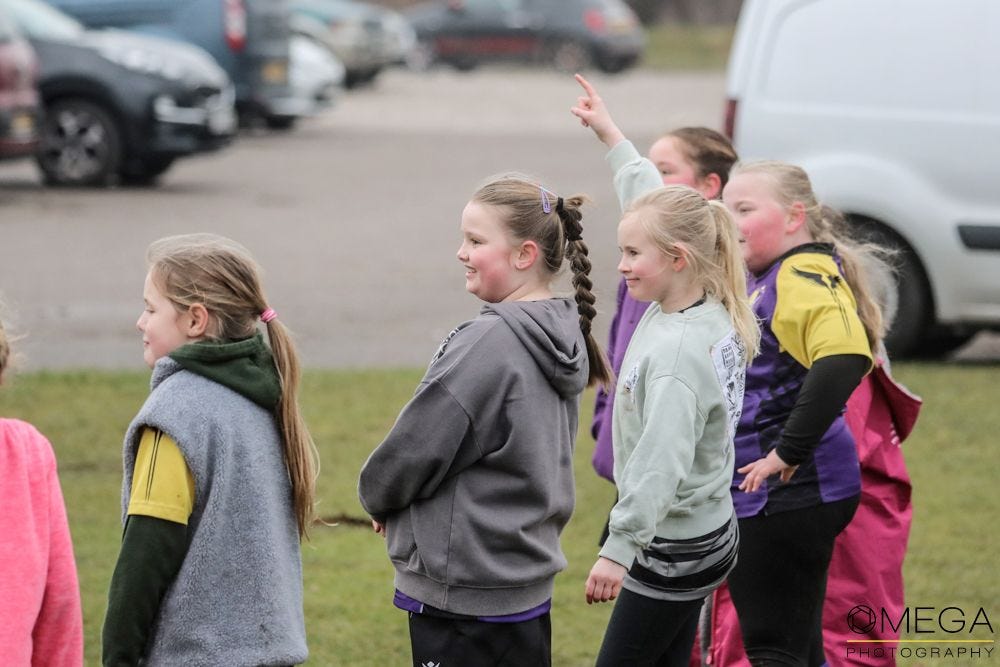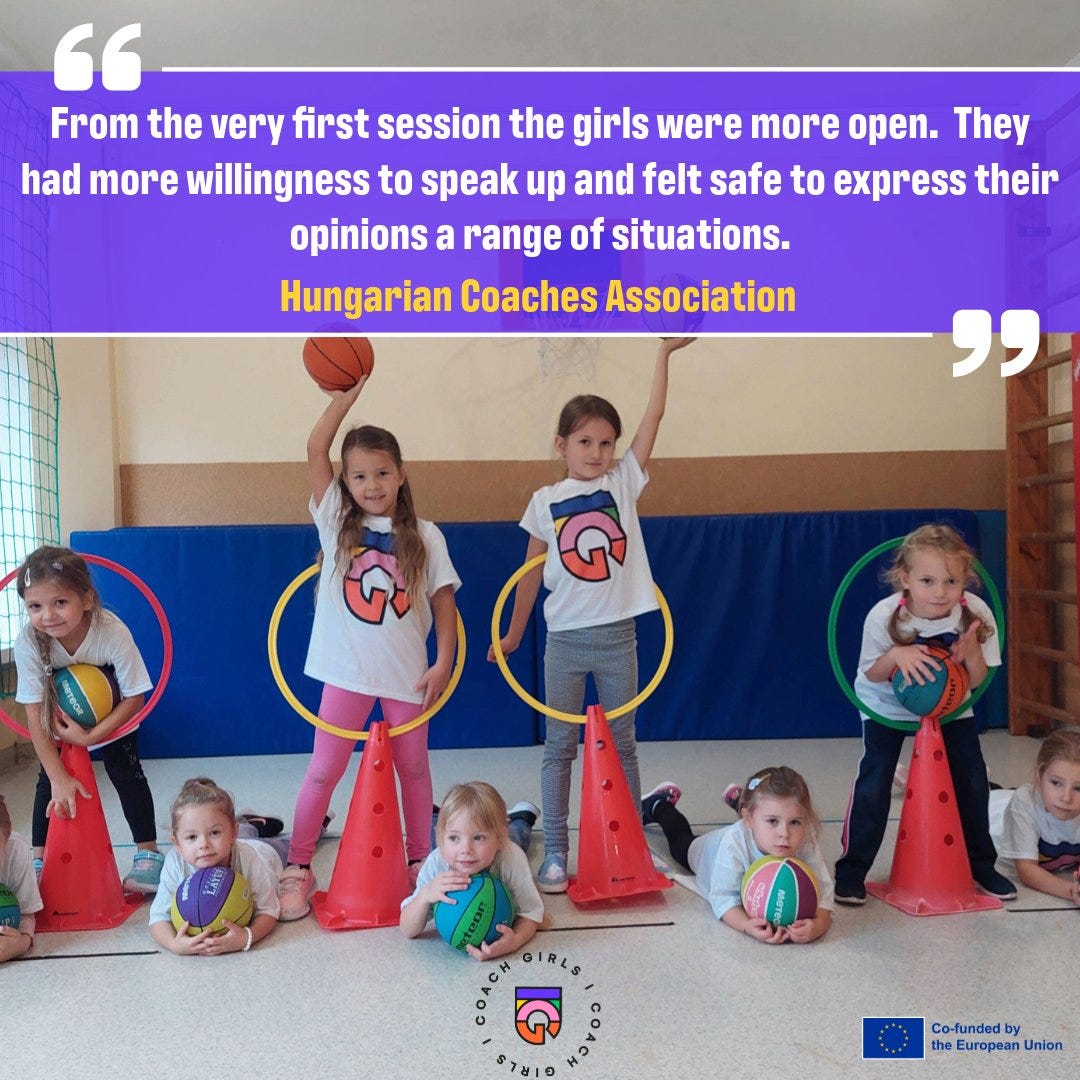ICoachGirls Part 2: Body confidence and the voice of the girl
ICoachGirls is a project that aims to promote and increase physical activity and sport in primary school girls. Find out more from coach and research Dr Ruth Brazier.
ICoachGirls seeks to promote and increase physical activity and sport amongst primary school age girls in local communities across six different countries, including Ireland, Hungary, Germany, Lithuania, the Netherlands. It’s a sister project of ICoachKids. Dr Ruth Brazier explains more in part 2 of the 2-part series:
Good coaching is good coaching. We don’t need to treat girls like they’re a completely different species. We don't need to wrap girls up in cotton wool.
Think about player engagement, communication strategies as a coach, session design and how to meet the needs of all players.
That's just as appropriate for boys as it is for girls, adults and players of all ages and abilities.
However, when coaching girls, like it or not, boys and girls are socialised slightly differently.
Often what is deemed to be normal and natural for boys and girls is different.
Imagine you’re running a session, particularly if the participants are young (7 years old) and just starting out in sport. Both boys and girls have never played organised rugby before.
At that age, they probably come with different types of activity backgrounds. Boys might be encouraged to rough and tumble, girls might not.
When coaching young children, the expectations that you have of boys and girls and how you interact with them might be slightly different
As players go through the ages, there’s not a need to treat them massively differently. The key thing is knowing them as individuals; not treating all girls the same and all boys the same.
Getting to know your participants as individuals and tailoring how you work with them is important.
Thinking about body confidence when coaching
Factoring in body confidence within coaching is hugely important particularly for girls and particularly as they maybe grow a bit older. We know girls hit puberty a bit earlier than boys.
Due to what is projected on social media about ideal body types, there’s alot of pressures and not just on girls.
Research shows that body confidence for girls becomes an issue, particularly as they start to hit puberty, which for some girls can be at 8-9 years old.
It’s important to be aware of body confidence and think about the language that we use. How we can promote body positivity?
Don’t put certain people in playing positions at a really young age because of what their body type is. Instead, think about how to promote different skills.
Rugby has a message that it’s for all shapes and sizes. Make sure this is true within your team by having different sizes of kit. This includes extra small shirts as well as larger ones.
Having sanitary products in the toilets and gender specific changing rooms can help. Have different spaces for different people to get changed.
Use the voice of the girl in your session
In ICoachGirls, we’ve tried to focus on the voice of the girl. That means we’ve tried to harness that and factor it into every session.
That means it’s not just adult coaches saying: ‘this is what we’re doing today and this is how we’re going to do it’.
We tried to give the girls an opportunity to say how they wanted to be active, especially if the participants had previously tried organised sport and had dropped out.
Giving them a voice to structure the sessions acknowledged that traditional ways of doing sport hadn’t worked for them.
We would run mini focus groups with the girls before each session. These would be feedback sessions asking them questions such as: ‘How did last week go’? What do you want to do this week?
We would give them a choice. That might be listing 2-3 things and asking which one they want to do.
A feedback session might feature something as simple as emojis and smiley faces or traffic lights (green, amber and red for what they liked and what they didn't).
Some countries came up with really innovative feedback ways, such as playing snakes and ladders. Girls have post it notes and they'd write things down. They’d then stick them onto the snakes and ladders corresponding to what they liked and didn’t (on the ladders for good things and snakes for bad things).
The voice of the girl was built into the the the ethos of the programme. If coaches want to know how to coach primary school or teenage girls, I would really recommend asking the girls.
Build the players into your sessions. How do they want to be active and how do they want to play? Ask them.
What works for them and what doesn’t? Ask them.
If you’re unable to sign up for regular paid subscription, you can still buy me a coffee.





